Latest episode
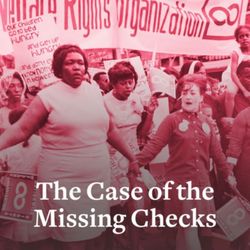
The Case of the Missing Checks
05:06|"High is a different thing for different folks. I don’t smoke pot but I’m awful high tonight." Community organizer Elsie Easley said this about the state of welfare to students at University of Illinois in 1972. Back in the 1960s and 1970s, welfare recipients who relied on government aid to feed their families were often subject to extreme delays and disrespect, with no recourse to defend their rights. Hear the story of mothers and activists like Easley who argued for welfare as a civil right. This episode was produced by Liz Pfeffer with archival audio from Illinois Public Radio. Music by Podington Bear.
More episodes
View all episodes
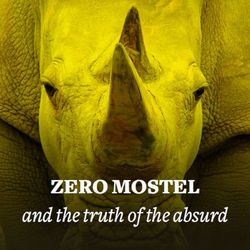
Zero Mostel and the truth of the absurd
09:07|When Zero Mostel was under trial by the House UnAmerican Activities Committee in 1955, the committee asked what he was doing at an anti-HUAC meeting. Mostel replied: "What if I did an imitation of a butterfly at rest? There is no crime in making anybody laugh." In this Popcast, hear about Mostel's dedication to the absurd. He exposed real life absurd situations of the McCarthy era by talking back, and brought out the human truth to absurd characters like Eugene Ionesco's "Rhinoceros" on stage. This episode was produced by Samara Breger with archival audio from the Studs Terkel Radio Archive from the WFMT Radio Network in Chicago. (Visit them at www.studsterkel.org.) You can find the original recording, and hundreds of other Terkel interviews at popuparchive.com/explore. Music from the Free Music Archive.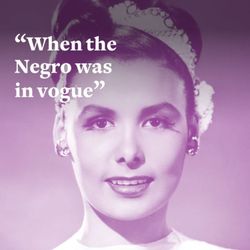
When the Negro was in vogue
09:01|At the Cotton Club, Harlem's premier nightclub of the 1920s and 30s, 16-year-old Lena Horne performed as a chorus girl alongside legends like Billie Holiday and Duke Ellington. The only catch? The audience was whites-only. In Popcast, hear Horne talk with mixed emotions about her time at the Cotton Club with clips from a 1966 recording from the Pacifica Radio Archives. Produced by Emma Hammond.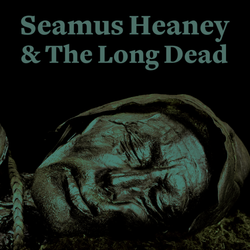
Seamus Heaney and the Long Dead
07:59|How do you write a love poem to a 2,000 year old stranger? On Popcast, hear about Northern Irish poet Seamus Heaney's obsession with "bog bodies." These centuries-old human remains were found in boglands of Northern Europe, and were often killed in violent, ritualistic ways – something that resonated with Heaney, living in war-torn Belfast. Bioarcheologist Andrew Chamberlain and Heaney scholar Stephen Enniss of the University of Texas at Austin weigh in on the science and symbolism of bog bodies in Heaney's work. This week's Popcast was produced by Audrey McGlinchy, a writer and radio journalist based in Austin, Texas. The archival audio used in this episode comes courtesy of the Pacifica Radio Archives. Visit them at pacificaradioarchives.org or call 1-800-735 0230. You can also find their archival radio show, "From The Vault," at fromthevaultradio.org. Find this podcast, along with thousands of archival recordings, at popuparchive.com/explore
Welcome to Womanhouse
07:13|The rooms were full of menstrual blood and Kotex, rubber breasts and stumbling brides, fragmented bodies in linen closets and simulacra of babies being born. It was 1972, and this was Womanhouse: a rickety Victorian house turned into a home for radical feminist installations by the students of Judy Chicago’s Feminist Art program at CalArts. A conversation between Chicago and writer Anaïs Nin offers insights into a volatile moment of Second-wave feminism. Produced by Adrian Shirk. The archival audio used in this episode comes courtesy of the Pacifica Radio Archives. Visit them at pacificaradioarchives.org or call 1-800-735 0230. You can also check out their own archival radio show, "From The Vault," at fromthevaultradio.org. Find this podcast, along with thousands of archival recordings, at popuparchive.com/explore Music from the Free Music Archive: "Maura and Dana," "You're Gonna Find Out," and "Never Smile" by Big Quiet (CC BY NC ND); "My Sweetie Went Away" Bessie Smith (Public Domain); "Bowery at...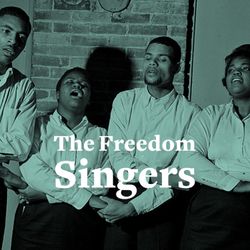
The Freedom Singers, and the three simple words that gave strength to a movement
05:25|It was the early days of the civil rights movement. Across the South, black students staged sit-ins, marches, demonstrations and protests that were violently repressed. In this podcast, two voices from the Student Nonviolent Coordinating Committee (SNCC) talk about the song “We Shall Overcome” – three simple words that became an anthem of strength and conviction for their movement. Bernie Lafayette remembers hearing the song in February 1961 during 14 nights of demonstrations to enter the movie theaters of Nashville, Tennessee. Cordelia Jackson first heard the song in March of that year at a sit-in at the Jackson, Mississippi public library. "In my heart, when I was worried about my friends in jail, and how they might be pulled out and lynched or anything, I heard those voices saying: 'We Shall Overcome.'" These interviews were conducted in 1962 in Chicago on the occasion of a concert there by the Freedom Singers. The newly-formed quartet was touring the country in support of civil rights and the...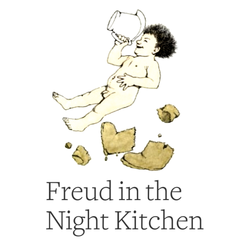
Freud in the Night Kitchen
04:30|When Maurice Sendak’s now classic children’s book In the Night Kitchen was released in 1970, it caused a scandal. Its protagonist, a young boy, is bare naked throughout the book, amidst a landscape phallic milk bottles and free-flowing liquids. Parents cried pornography. Armchair psychologists jumped to analyze its Freudian subtext. But the kids? They just laughed. In this Popcast, we play you excerpts from Sendak's 1970 conversation with legendary interviewer Studs Terkel. Sendak balks at the idea of writing down to kids. In fact, Sendak thinks it's the kids who have “crap detectors” that allow them to tap into the real spirit of his books. Together, Sendak and Studs consider that it's the adults who can’t understand children’s literature, and not the other way around. Hear the full interview in The Studs Terkel Radio Archive collection on Pop Up Archive, from The WFMT Radio Network: https://www.popuparchive.com/collections/938/items/37552
